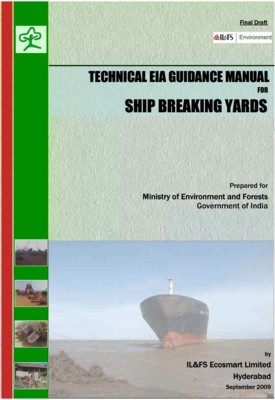Common Property Resources
Supreme Court order in February 27, 2012 on the interlinking of rivers project A statement and an appeal by concerned citizens to think of all the implications
Posted on 29 Mar, 2012 06:37 PMThe full statement is as follows -
We, the signatories to this statement, wish to record our utmost concern at the Hon’ble Supreme Court’s judgment of 27 February 2012 on the Inter-Linking of Rivers Project (ILR), on the following grounds:
Soil endowments, production technologies and missing women in India - A World Bank working paper
Posted on 19 Mar, 2012 03:08 PMThe paper argues that in India, where 72 percent of the population is rural, there is a significant and important association between the geographical variation in exogenous soil texture and rural infant sex ratios. In agriculture, the depth of land and seedbed preparation are exogenously determined by the soil texture.
Impact report of watershed development programme in Ayyannapalem village of Guntur district in Andhra Pradesh
Posted on 19 Mar, 2012 11:59 AMAuthor : Kotikala Chandrasheakar
Name of the watershed: Ayyannapalem
Name of the Mandal: Bollapalli
District: Guntur
Our water woes: Ecological imbalance is the culprit!
Posted on 12 Mar, 2012 12:01 PMAuthor : Madhuranthakam Prabhakar Rao
India's ecological past: Review of a two volume book on environmental history in EPW
Posted on 02 Mar, 2012 02:18 PM
Utilisation of human urine as a source of nutrients for banana and maize cultivation - A compilation of research papers
Posted on 01 Mar, 2012 02:24 PMSource separated anthropogenic liquid waste (Human urine) - A potential plant nutrient for banana cultivation
Challenges for achieving conservation and development - A presentation by Elinor Ostrom at the Khoshoo memorial lecture, ATREE
Posted on 22 Feb, 2012 06:52 PM
Rural water access: Governance and contestation in a semi-arid watershed in Udaipur, Rajasthan: A paper in EPW
Posted on 21 Feb, 2012 05:19 PMStudy area
This study is carried out in micro-watershed No.19, which comprises six villages in Jhadol tehsil of Udaipur district in Rajasthan. A minor irrigation project completed in 1980 serves these six villages
Rainfall, storage levels in reservoir and groundwater use
Towards greener development: EIA sector specific manuals brought out by the Ministry of Environment and Forests
Posted on 19 Feb, 2012 07:20 PMThese manuals are aimed at expert appraisal committees, and hope to improve the quality of appraisal of projects. These will also provide a template for use by organisations and consultants developing the EIA reports.
Framework for valuing ecosystem services in the Himalayas - An ICIMOD technical report
Posted on 17 Feb, 2012 12:12 PMThis has been a generic first attempt that can be fine-tuned and customised for each type of ecosystem and each kind of service value. Ecosystem services are defined by the Millennium Ecosystem Assessment as ‘the benefits people obtain from ecosystems'.
Mountains occupy 24% of the global land surface area and are home to 12% of the world’s population. Mountains have an ecological, aesthetic, and socioeconomic significance, not only for those living in the mountain areas, but also for people living beyond them. However, the importance of ecosystem services arising from mountains is not properly recognised. The HKH region is endowed with a rich variety of gene pools and species, and ecosystems of global importance. It is a storehouse of biological diversity and a priority region in many global conservation agendas. The region has many unique ecosystems that play a critical role in protecting the environment and in providing livelihoods for much of Asia and beyond.




